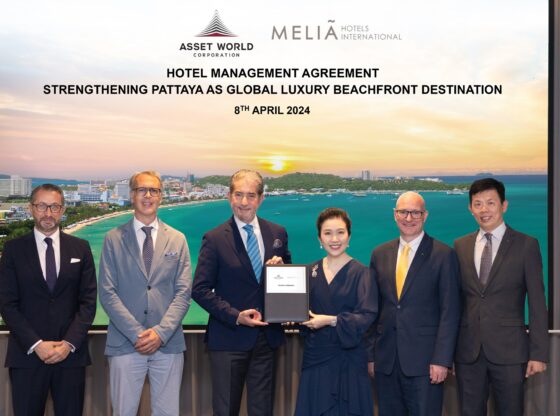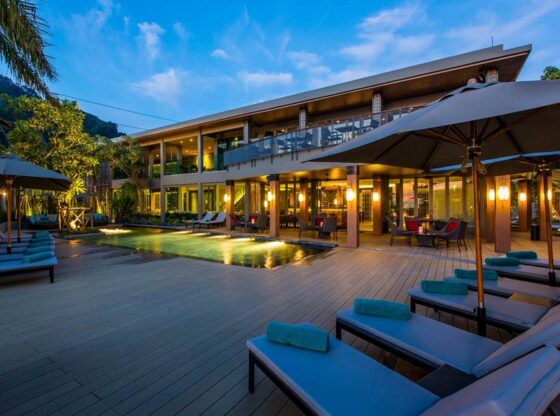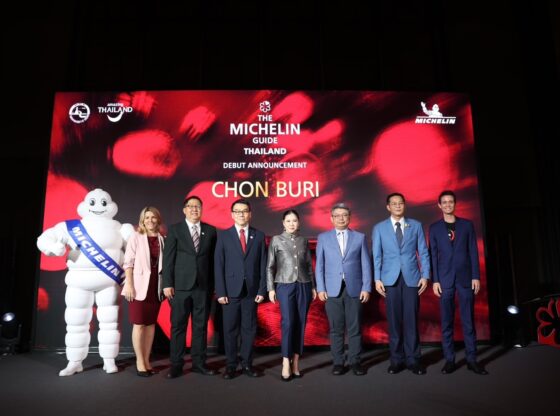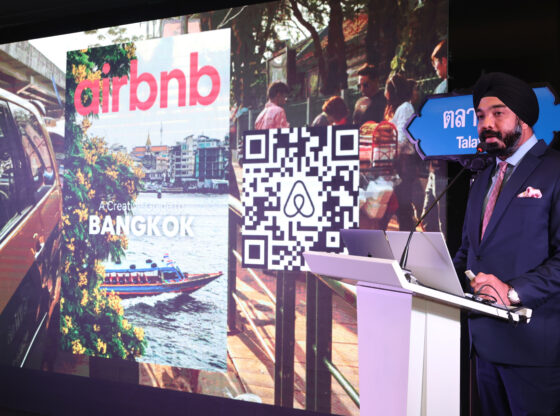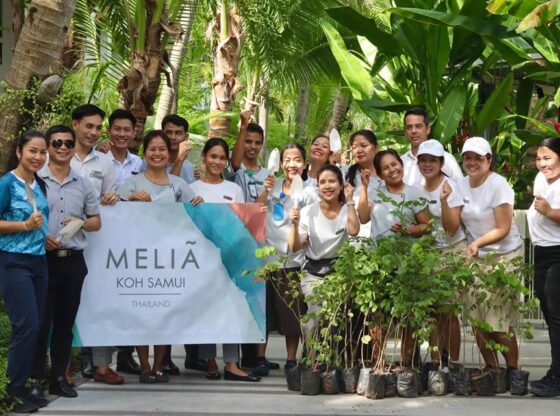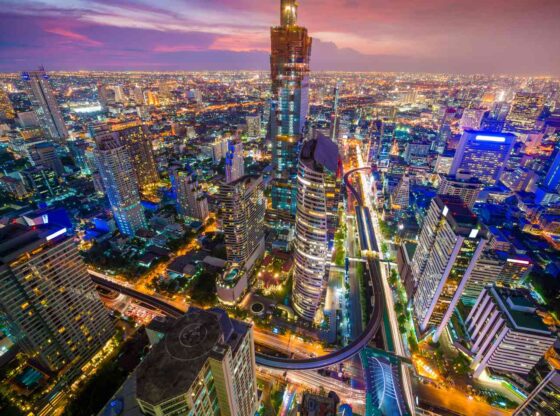![]()
International Ozone Days 2021: the Department of Industrial Works reveals the success of the activities for promoting the protection of ozone layer under the slogan “Good Ozone, Good Life”
The International Ozone Day 2021, the Department of Industrial Works of the Ministry of Industry was the main institute responsible for the mission of implementing, in accordance with the Montreal Protocol, the reduction and eventually the end of the usage of chemicals that deplete the ozone layer. This accomplishment is achieved through activities and campaigns organized on the International Ozone Day, which this year’s slogan is “Good Ozone, Good Life”. This slogan aims to acknowledge and informe Thai people on the importance of the ozone layer, in addition to support the future direction that the public sector and relevant institutions are striving for, in order to see tangible results and changes.
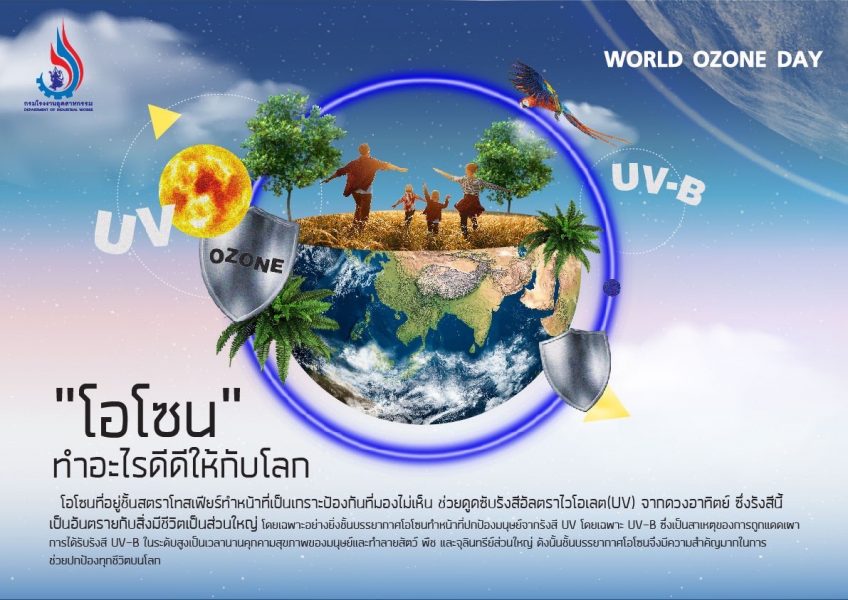
“The ozone layer is at 10-15 kilometres above the sea level. It has the duty of absorbe the ultraviolet rays, especially the UVB. However some of the UVB rays are able to reach to the Earth’s surface. The depletion of the stratospheric ozone layer will lead to an increment of UVB rays passing to the Earth’s surface. The depletion of 1% of the stratospheric ozone layer results in the intensification of 2% of UVB rays’ ability to pass to the Earth’s surface, which would increase the development of skin cancer by 3-6% in people. The more the UVB rays can pass through, the more damage it would cause to life on earth, including humans, animals, and plants. Significant is the effect on the human skin: the UVB rays can change our DNA and cause skin cancer. It would also affect the agricultural crops production to decrease due to the damage in the photosynthesis process that lessens the plant’s ability to absorb carbon dioxide and stunts their growth. This more carbon dioxide would increase in the atmosphere, leading to a growth in global warming and results in the world temperature becoming off-balanced” said Viraj Vithoontien, Department of Industrial Works’ advisor for the Vienna Convention and the Montreal Protocol.
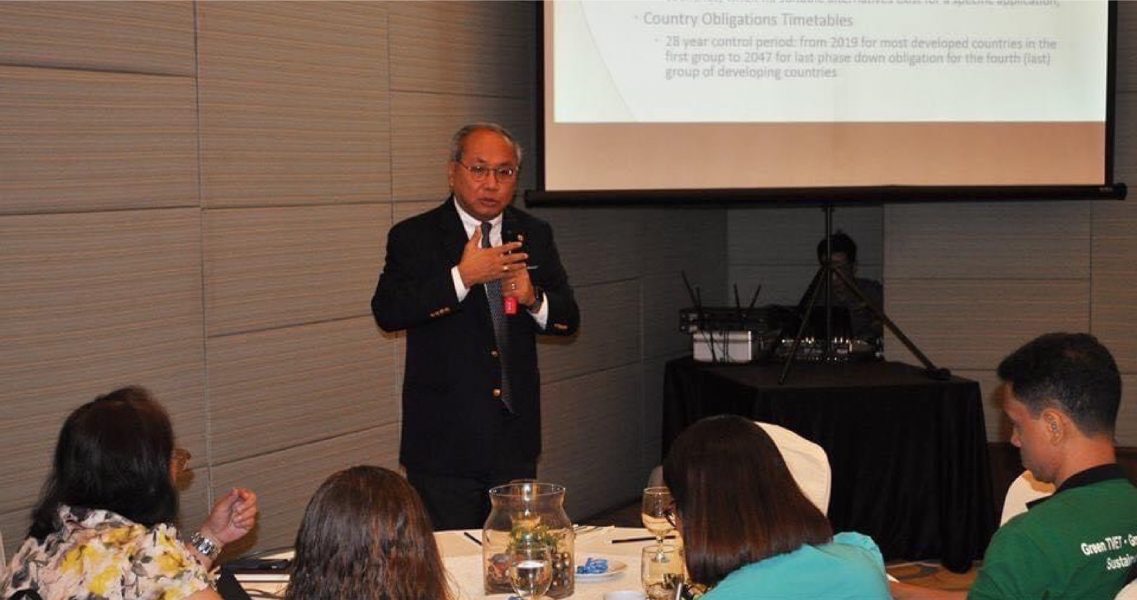
Thus, if we are not actively protecting the ozone layer, it is predicted that in 2030 many people will develop skin cancer, which will increase to about 2 million patients all over the world each year. Furthermore, the United States’ Environmental Protection Agency estimates that the amount of people who would develop cataracts, from the year 1987 to 2100, would increase over 63 million people, which over 50% of those with cataracts would result in blindness. From the research, the statistics from 1987-2006, the increased amount of UV rays that enters the earth’s atmosphere would also cause faster deteriorate rate in objects and household appliances, which results in the loss of over 4.6 trillion US dollars.
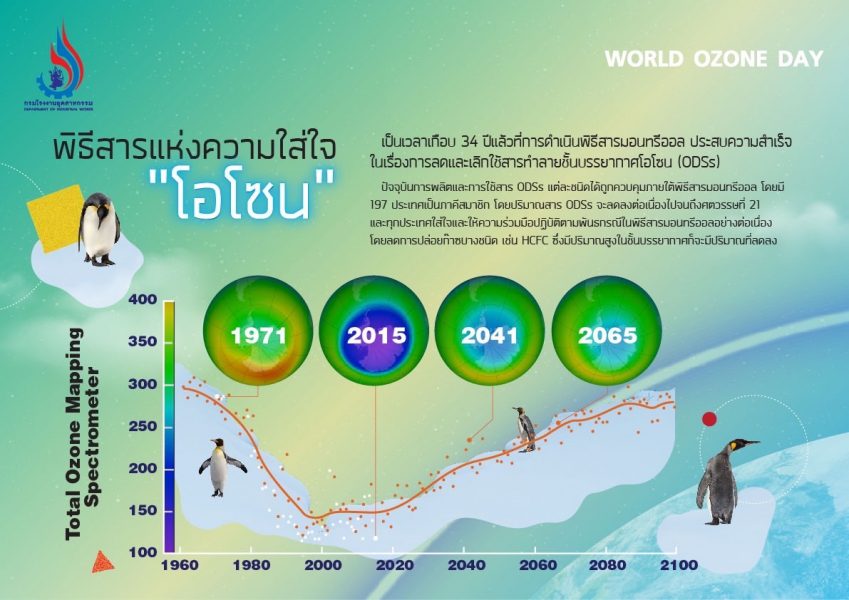
If there will be no initiation of the Montreal Protocol, and we keep using the chemicals chlorofluorocarbons (CFC) and hydrochlorofluorocarbons (HCFC), within the year 2070 these chemicals can lead to a raise of 2 degrees Celsius in temperature due to the continuous release of the ozone depleting substances to harm the stratospheric ozone layer. This would bring about the global warming and climate change that would lead to many other natural crises. Therefore, the continuous campaigning and raising of international awareness is presently encouraging all nations to take a step closer to ending the usage of the chlorofluorocarbons (CFC). The world has been able to reduce over 98.6% of CFC and HCFC usage, and the remaining 1.4% is the usage of hydrochlorofluorocarbons (HCFC), which the participating nations aim to be rid of by 2030.
The public sectors in Thailand have organized activities that continuously encourage the awareness about the importance of protection of the ozone layer. In 1997, Thailand has become the first developing country that enforcing by law the ban of importing and manufacturing of the chlorofluorocarbons (CFC) chemicals in the production of refrigerators for the household. This was a significant achievement as other developed countries have only banned the CFC chemicals a year prior. In 1998, Thailand implemented a magnificent campaign to change the air conditioner with Chiller systems, the huge appliances used by hotels and large industries. The campaign was the first time Thailand linked the conservation of the Ozone layer and the climate change crisis together, before it became international awareness as it is today. More importantly, Thailand is the second country, or the first developing country, that has changed the chiller chemical, better known in the industry sector as “refrigerant”, from R22 to R32 which has the capacity to produce coolness, however does not deplete the ozone layer. This is also beneficial for Thailand’s air conditioner and refrigerant export business to prosper and increase their sales overseas.
Although the issue of the depletion in the stratospheric ozone layer doesn’t seem life threatening right now, the damages that are accumulating should be a major concern on everyone’s mind. For example, you and your beloved ones can develop skin cancer or cataracts. It also affects the climate change and global warming that impacts the agricultural well-being of crops all over the world. This directly affects the environment, industries, and the economy sector as well. This important issue can easily be resolved with everyone’s cooperation with the diligence in trying to protect the ozone layer by regularly maintenance our household appliances such as the air conditioners, refrigerators, and freezers. Any damages should be fixed with the right standards by the professional technicians that would allow the appliances or tools to have a long lasting service life and energy saving potential. It would also minimize spendings, which is not only advantageous for individuals but for the world. It is an undeniable Win-Win situation for everyone in the world and for ourselves.
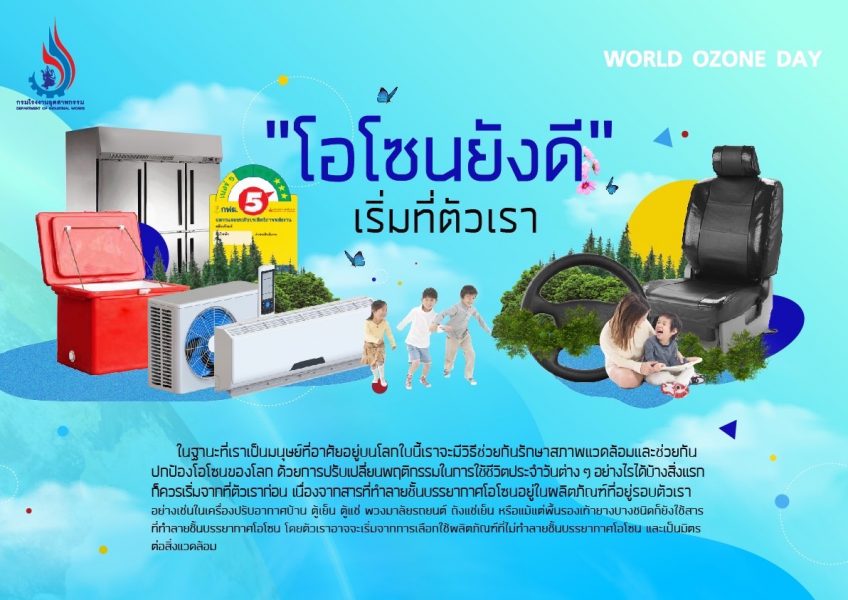
For more information, please visit https://youtu.be/y02PH4rOyyY



